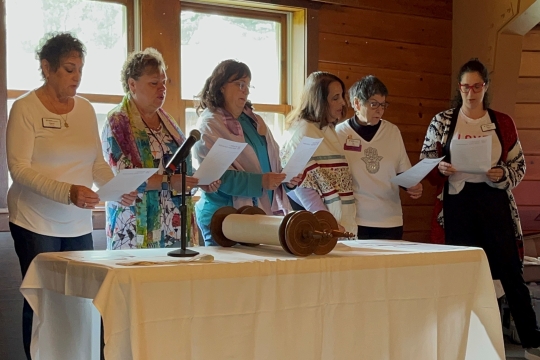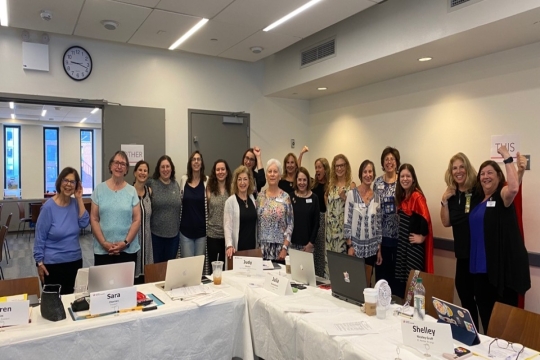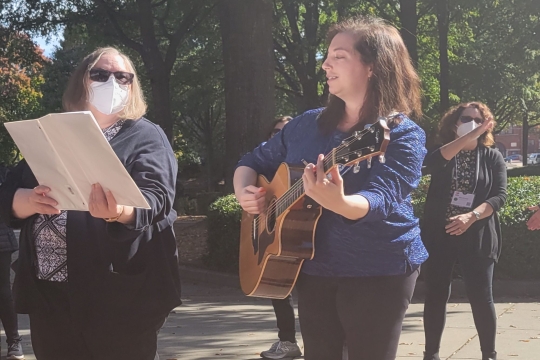
When I was a little girl attending Sunday school, I learned about the Ten Commandments and understood the gist of most of them, particularly the commandments about one God, not stealing, and honoring my Mother and Father. I learned the Sh’ma, our elemental clarion to God’s unique oneness and our belief in God as Jews. I learned the V’ahavta, the instruction manual for keeping the faith and passing it on, l’dor v’dor. I was particularly drawn to the V’ahavta for some reason. Maybe because it spoke about “teach your children” and I liked, as a child, being part of a prayer we said in temple. This was the first multi-line prayer I memorized, as the Sh’ma and my at-home Shabbat blessings were much shorter. Perhaps, I was proud of my accomplishment. But these principles and prayers must have spoken to me on a different level. Somehow, even as a child, I knew what was really important to incorporate into my being to truly be Jewish.
If we had to choose only one Torah portion to summarize the entire Torah, this week’s parashah, Va-et’chanan, must be in the top ten finalists. Here we find a re-statement of the Ten Commandments in slightly different form than in Exodus, the Sh’ma, and the first paragraph of the V’ahavta – all of my childhood favorites and genuine Torah superstars.
In Va-et’chanan, Moses retells the important lessons of the Exodus, and recounts to the generation about to enter the land given the Israelites by the one God, the rules and obligations that are required of them to stay in the Eternal’s good graces and how to behave appropriately as they become a nation girded by the mitzvot of Torah. Inherently, Va-et’chanan speaks to our free will. Although we may not be in control of many circumstances, we are responsible for the ethical and spiritual choices we make as we walk through life – in many ways, our wilderness. Moses would not have needed to remind us not to kill, not to steal, not to covet, not to worship nor make idols to multiple gods, to be honorable to family and community, if all of these behaviors were pre-ordained. He would not have had to include an invocation to teaching future generations, and a simple mantra to God’s singular omnipotence if all was pre-set. We are partners in contract with God and Torah.
According to Rabbi Max Chaiken, “Parashat Va-et’chanan demands our participation as interpreters of Torah. Moses speaks “to all Israelites” with the instruction to “listen…study…and observe the laws”(Deut 5:1). This belief in the importance of respectful debate, and study leading to positive behavior is the hallmark of our traditions and sociological identity as Jews.
Finally, with an appreciation for a good tagline, Va-et’chanan offers a verse that sums up a meaningful contemporary byline for morality and a good Jewish life: “Do what is right and good in the sight of the Eternal, that it may go well with you…”(Deut 6:18). So simple even a child can understand and remember, yet so very sophisticated and universal as to serve us forever.
Karen Sim is WRJ (Women of Reform Judaism) First Vice President. She lives in Cincinnati, Ohio, and belongs to Isaac M. Wise Temple and Women of Wise. She is on the WRJ Central District Board Executive Board. She sits on the URJ (Union of Reform Judaism) Board and is on the HUC-JIR (Hebrew Union College-Jewish Institute of Religion) Central Region Board of Overseers.
Related Posts

Parashat Yom Rishon shel Rosh HaShanah

Cultivating a Culture of Accountability and Belonging


